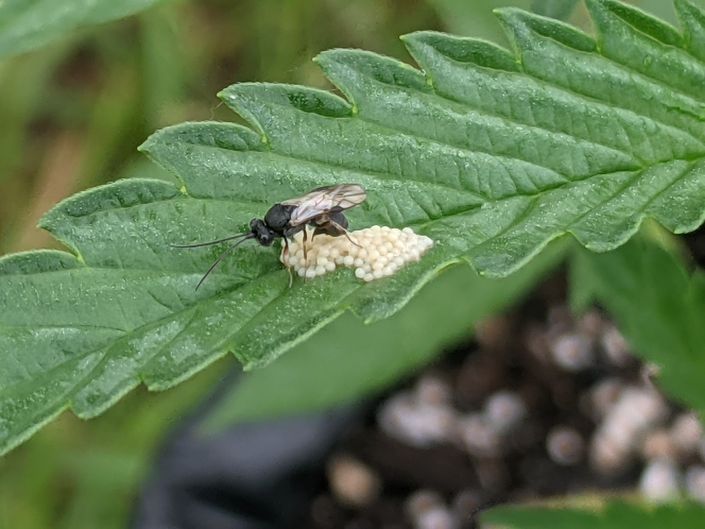
The Aquaponic Master Class offers an extensive exploration into a diverse range of crops suitable for aquaponic systems, ensuring learners can cultivate a wide variety of plants to meet any culinary or commercial need. From leafy greens like lettuce, kale, and spinach, known for their rapid growth rates and ease of cultivation in aquaponic environments, to nutrient-rich herbs such as basil, mint, and cilantro, students will learn the specific requirements and benefits of each plant type. The course also delves into the cultivation of fruit-bearing crops like tomatoes, cucumbers, and peppers, providing insights into the techniques for managing these more demanding plants within an aquaponic setup. Moreover, it addresses the potential for root crops such as carrots and radishes, exploring innovative approaches to integrate them into aquaponic systems. This comprehensive coverage ensures participants are well-equipped to design their systems with a focus on variety, nutrition, and marketability, fostering a holistic understanding of plant cultivation in aquaponics.

Aquaponic Master Class: From Seed to Harvest
Course Overview
Welcome to the Aquaponic Master Class: From Seed to Harvest, the ultimate course designed for enthusiasts, gardeners, and future farmers who wish to dive deep into the world of aquaponics. This comprehensive course will guide you through the journey of building, maintaining, and optimizing an aquaponic system, blending theory with hands-on experience to create a sustainable cycle of fish and plant life. Whether you're aiming to cultivate fresh produce for your home, community, or for commercial sale, this master class will equip you with the knowledge and skills needed to succeed.
What You Will Learn
- Foundations of Aquaponics: Understand the principles of aquaponics, including mineral cycleing, symbiotic relationship between fish and plants, and the benefits of aquaponic farming.
- System Design and Setup: Learn how to design and construct various types of aquaponic systems, from simple backyard setups to commercial-scale operations. This includes choosing the right location, tanks, grow beds, and equipment.
- Fish and Plant Selection: Discover how to select the best fish and plants for your system, considering factors like climate, water temperature, and system size.
- Water Quality Management: Master the techniques for testing and maintaining optimal water conditions to ensure the health and growth of your fish and plants.
- Plant Care and Management: Gain insights into seeding, transplanting, nutrient management, and pest and disease control in an aquaponic system.
- Fish Health and Management: Learn about fish stocking densities, feeding practices, and health monitoring to keep your aquatic inhabitants thriving.
- System Optimization and Troubleshooting: Learn how to fine-tune your system for maximum efficiency and productivity, and how to troubleshoot common issues.
- Sustainability and Innovation: Explore advanced topics in aquaponics, including solar energy integration, waste management, and innovative technologies to enhance sustainability.
- Business Planning and Marketing: For those interested in commercial aquaponics, this module will cover business planning, market analysis, and strategies for selling your produce.
Course Format
- Blended learning with online lectures and reference material as well as interactive live sessions.
- Materials Provided: Comprehensive course materials, including lecture notes, slides, and video tutorials, reference guides and example photos of many different aspects of aquaponics.
- Expert Instructor: Learn from an experienced aquaponic farmer, scientist, and business owner.
- Community: Join a vibrant community of fellow aquaponics enthusiasts for support and collaboration.
Who Should Enroll
- Home gardeners looking to explore sustainable food production.
- Educators seeking to integrate aquaponics into their curriculum.
- Entrepreneurs and farmers considering aquaponics as a business.
- Environmental enthusiasts interested in sustainable and innovative farming methods.
Certification
Upon completion, participants will receive an Aquaponic Master Class Certificate, recognizing their knowledge and skills in aquaponic farming.
Enroll Now
Join us in this exciting journey to master aquaponics, and start growing your sustainable food system today. Whether for personal satisfaction, educational purposes, or commercial success, this master class will provide you with the tools to thrive in the world of aquaponics.
Class Starts 6/1/24
The design and planning module of the Aquaponic Master Class stands as a cornerstone of the curriculum, empowering participants with the knowledge and tools necessary to conceptualize and construct efficient, productive aquaponic systems. This segment delves into the critical aspects of system design, including selecting the right location, understanding the balance between fish load and plant filtering needs, and choosing the appropriate equipment for various scales of operation, from small home setups to larger commercial ventures. Students will learn about the advantages and limitations of different system types—such as Media Beds, Nutrient Film Techniques (NFT), Wicking Beds, Dual Root Zone Pots, Tree Barrels and Deep Water Culture (DWC)—and how to make informed decisions based on their goals, space, and resources. Through interactive workshops and practical exercises, participants will develop the skills to create detailed plans, perform cost analyses, and envision sustainable aquaponic systems that are tailored to specific environmental conditions and production targets, laying a solid foundation for successful aquaponic farming.


Within the Aquaponic Master Class, the module on Integrated Pest Management (IPM) is meticulously crafted to address the unique challenges of managing pests in aquaponic systems, with a strong emphasis on sustainable and natural solutions. This part of the course dives deep into identifying common pests that threaten aquaponic environments, such as aphids, spider mites, and whiteflies, and outlines organic strategies for their control. A significant focus is placed on biocontrols and the introduction of beneficial insects like pirate bugs, lacewings, and predatory mites, which act as natural predators to harmful pests. Participants will learn how to establish a balanced ecosystem within their aquaponic setup, leveraging these beneficial organisms to maintain plant health without resorting to chemical pesticides that could harm the fish and the system’s delicate balance. Detailed examples will equip learners with the knowledge to implement effective, eco-friendly pest management strategies, ensuring their aquaponic gardens thrive while adhering to the principles of sustainability and environmental stewardship.

The Aquaponic Master Class delves into the crucial aspect of nutrient management, providing detailed information on the essential nutrients required for both plant health and vigorous fish growth. This comprehensive module covers the macro and micronutrients necessary for optimal plant development, including nitrogen, phosphorus, potassium, calcium, magnesium, and iron, among others. It explains the symbiotic relationship between fish waste and plant nutrition, teaching participants how to monitor and maintain recommended nutrient levels within their systems. The course offers practical dosing tables and guidelines to help adjust nutrient concentrations, ensuring plants receive the precise balance needed without compromising fish health. Through a blend of theoretical knowledge and hands-on practice, students learn to diagnose nutrient deficiencies, implement corrective measures, and understand the dynamics of nutrient uptake in aquaponic systems. This in-depth approach ensures participants can sustainably manage their aquaponic environments, promoting robust plant growth and healthy fish populations.

The troubleshooting and maintenance guide within the Aquaponic Master Class is an indispensable resource, meticulously designed to equip participants with the skills to identify, diagnose, and resolve the wide array of challenges that can arise in an aquaponic system. This guide delves into common issues such as imbalances in water chemistry, clogged filtration systems, inadequate plant growth, and fish health problems, offering step-by-step solutions and preventive strategies. It emphasizes regular maintenance routines to ensure the longevity and efficiency of the aquaponic setup, including checking water quality parameters, cleaning components, and managing the system's biological balance. With practical advice, troubleshooting checklists, and maintenance schedules, this module prepares students to swiftly address problems, reducing downtime and maximizing the productivity of their aquaponic systems. This proactive approach not only enhances the resilience of aquaponic operations but also fosters a deeper understanding of the intricate dynamics at play, ensuring participants can maintain their systems at peak performance.
Example Featured Products
Showcase other available courses, bundles, and coaching products you’re selling with the Featured Products block to provide alternatives to visitors who may not be interested in this specific product.



